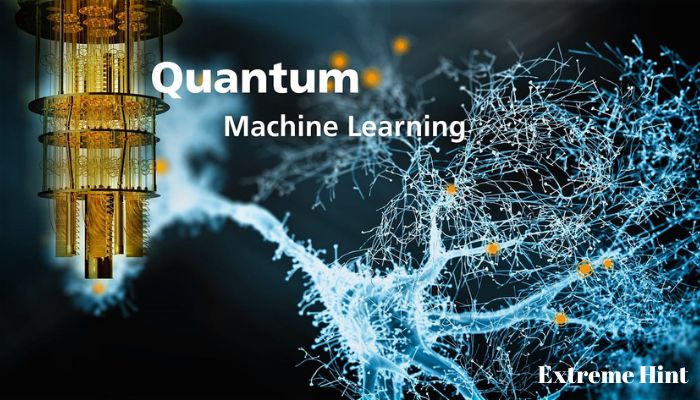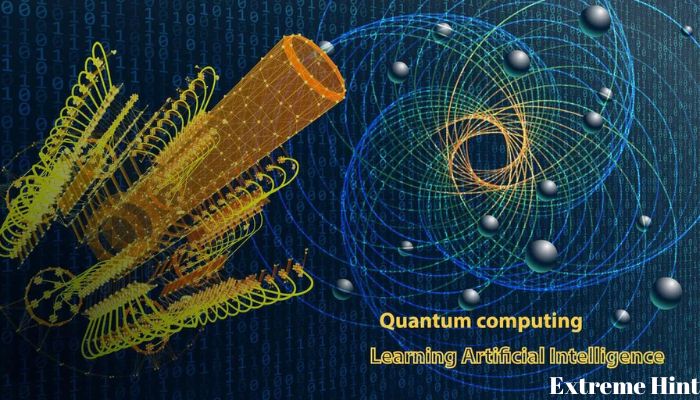Unlocking the Power of Quantum Machine Learning: Exploring the Future of AI
In the realm of artificial intelligence (AI), the fusion of quantum computing and machine learning has sparked a revolution, opening doors to unprecedented possibilities. Quantum machine learning (QML) represents the convergence of two cutting-edge fields, each with its own set of mind-bending principles. This synergy promises to transcend the limitations of classical computing, unlocking the power to solve complex problems that were once deemed insurmountable. In this article, we will delve into the intricacies of quantum machine learning, exploring its potential applications, challenges, and the transformative impact it could have on the future of AI.
Combining Quantum Computing and Machine Learning
Quantum Computing Primer
To comprehend the synergy between quantum computing and machine learning, a fundamental understanding of each component is necessary. Bits are used in conventional computers and stand for either a 0 or a 1. In contrast, quantum computers leverage qubits, which can exist in multiple states simultaneously, thanks to the principles of superposition and entanglement.

Qubits can exist in multiple states simultaneously thanks to superposition, which greatly expands computational capacity. Entanglement, on the other hand, creates a unique connection between qubits, enabling them to share information instantaneously, regardless of the physical distance between them. These quantum phenomena pave the way for solving complex problems at speeds unimaginable with classical computing.
The Essence of Machine Learning
As a branch of artificial intelligence, machine learning entails creating algorithms that let computers learn from data and make decisions or predictions without the need for explicit programming. It relies on statistical techniques to allow systems to improve their performance over time, adapting to new information and refining their output.
The key components of machine learning include training data, a learning algorithm, and a model. During the training phase, the algorithm analyzes the data, identifying patterns and relationships. The resulting model can then make predictions or decisions when presented with new, unseen data.
Quantum Machine Learning: A Marriage of Minds
Quantum Supremacy and Machine Learning
Quantum supremacy, a term coined to describe the point at which a quantum computer can outperform the most advanced classical computers, sets the stage for the integration of quantum computing and machine learning. Traditional machine learning algorithms face limitations when dealing with vast datasets or solving complex optimization problems. Quantum computers, with their ability to handle vast amounts of information simultaneously, offer a compelling solution to these challenges.
In the context of machine learning, quantum computers can exponentially speed up certain computations, such as matrix inversions and linear algebra operations. This acceleration can revolutionize the training of machine learning models, enabling the processing of massive datasets in a fraction of the time it takes classical computers.
Quantum Machine Learning Algorithms
Several quantum machine learning algorithms have emerged, leveraging the unique properties of quantum computing to enhance performance. Notable examples include quantum support vector machines, quantum neural networks, and quantum clustering algorithms.
Quantum support vector machines extend the classical support vector machine algorithm by employing quantum parallelism to evaluate multiple solutions simultaneously. Quantum neural networks harness the power of quantum entanglement and superposition to process information more efficiently than their classical counterparts. Quantum clustering algorithms leverage quantum parallelism to identify patterns in data, offering a quantum advantage in unsupervised learning tasks.
Applications of Quantum Machine Learning
Drug Discovery and Molecular Simulation
One of the most promising applications of quantum machine learning lies in the field of drug discovery and molecular simulation. Traditional methods for simulating molecular interactions are computationally intensive, often requiring significant time and resources. Quantum machine learning has the potential to revolutionize this process by rapidly exploring the vast solution space of molecular configurations.
By leveraging quantum algorithms, researchers can simulate complex interactions between drugs and target molecules with unprecedented accuracy. This acceleration expedites the drug discovery pipeline, potentially leading to the development of novel therapeutics for various diseases.
Optimization Problems
Optimization problems, pervasive in fields like logistics, finance, and operations research, pose a challenge for classical computers due to their complexity. Quantum machine learning algorithms excel in solving these problems by leveraging quantum parallelism to explore multiple solutions simultaneously.
In finance, for instance, quantum algorithms can optimize investment portfolios, considering a multitude of factors and constraints. Similarly, in logistics, quantum optimization can streamline supply chain management, minimizing costs and improving efficiency.
Artificial Intelligence in Quantum Computing
The symbiotic relationship between quantum computing and machine learning extends to the field of AI itself. Quantum algorithms can enhance the training of machine learning models, enabling more accurate predictions and decisions. This convergence holds the potential to create more intelligent and adaptive AI systems.

Quantum-enhanced AI could find applications in various domains, from natural language processing to image recognition. The ability to process and analyze data at unprecedented speeds opens the door to AI applications that were once deemed impractical.
Secure Communication and Cryptography
The quantum realm introduces not only computational advantages but also new paradigms for secure communication. Quantum key distribution (QKD) is a cryptographic technique that leverages the principles of quantum mechanics to secure communication channels. Quantum machine learning can play a role in enhancing the security of these quantum communication systems.
By employing quantum algorithms, researchers can develop more robust encryption methods, safeguarding sensitive information against the evolving threats posed by quantum computers. This intersection of quantum communication and machine learning represents a frontier in the quest for secure and private information exchange.
Challenges and Considerations
Quantum Decoherence and Error Correction
While the potential of quantum machine learning is vast, it is not without its challenges. Quantum computers are highly sensitive to their environment, and maintaining coherence—the delicate state of superposition and entanglement—is a formidable task. Quantum decoherence, caused by external factors such as temperature fluctuations or electromagnetic interference, can disrupt quantum computations.
Error correction in quantum computing adds another layer of complexity. Quantum bits, or qubits, are susceptible to errors due to various factors. Implementing effective error correction codes is crucial for preserving the integrity of quantum computations. Overcoming these challenges is essential for realizing the full potential of quantum machine learning in practical applications.
Scalability and Resource Requirements
The current generation of quantum computers is still in its infancy, with relatively few qubits and limited coherence times. Achieving the scalability required for solving complex real-world problems remains a significant hurdle. As the field progresses, researchers are actively exploring methods to increase the number of qubits, extend coherence times, and enhance overall system reliability.
Furthermore, the resource requirements for implementing quantum algorithms must be considered. Quantum computations often demand specialized hardware, cryogenic cooling systems, and meticulous environmental controls. Balancing the need for quantum resources with practical considerations is a critical aspect of the ongoing development of quantum machine learning.
Quantum Machine Learning Algorithms’ Practicality
While quantum machine learning algorithms exhibit impressive theoretical advantages, their practical implementation poses challenges. Adapting existing machine learning models to a quantum framework and integrating them into quantum hardware is a complex task. Additionally, determining the specific problem instances for which quantum algorithms provide a significant advantage over classical algorithms requires careful consideration.

Practicality also extends to the accessibility of quantum computing resources. As quantum computers are not yet widespread, researchers face challenges in accessing the necessary infrastructure for experimentation and application development. Efforts to make quantum computing more accessible to the broader scientific community are essential for fostering innovation in quantum machine learning.
Future Prospects and Ethical Implications
A Sneak Peek at Quantum Machine Learning in the Future
Despite the challenges, the future of quantum machine learning holds immense promise. As quantum hardware matures and becomes more accessible, researchers anticipate groundbreaking developments in a variety of fields. Quantum machine learning has the potential to redefine the limits of what is computationally possible, addressing problems that were once considered intractable.
The integration of quantum machine learning into AI systems could lead to unprecedented advancements in natural language processing, image recognition, and decision-making. Quantum-enhanced AI could become a driving force behind innovation, offering solutions to complex problems that were previously beyond the reach of classical computing.
Ethical Considerations in Quantum Machine Learning
As quantum machine learning progresses, ethical considerations come to the forefront. The potential impact of quantum algorithms on data privacy, security, and societal structures raises questions about the responsible development and deployment of these technologies.
Ensuring the ethical use of quantum machine learning requires a multidisciplinary approach, involving researchers, policymakers, and industry stakeholders. Transparency in algorithmic decision-making, robust security measures, and equitable access to quantum resources are among the key considerations in navigating the ethical landscape of quantum machine learning.
Conclusion
The marriage of quantum computing and machine learning represents a paradigm shift in the field of artificial intelligence. Quantum machine learning harnesses the unique properties of quantum mechanics to exponentially enhance computational power, opening doors to transformative applications in drug discovery, optimization problems, and secure communication.
While challenges such as quantum decoherence and algorithmic practicality remain, the ongoing research and development in the field are paving the way for a future where quantum machine learning becomes an integral part of AI systems. The potential to solve complex problems at speeds previously unimaginable holds the promise of reshaping industries and advancing scientific discovery.
As quantum machine learning progresses, ethical considerations must guide its development and deployment. Striking a balance between innovation and responsibility is crucial to ensuring the positive impact of these technologies on society. The journey towards unlocking the full power of quantum machine learning is both an exciting scientific endeavor and a call to ethical stewardship in the era of quantum-enhanced artificial intelligence.



